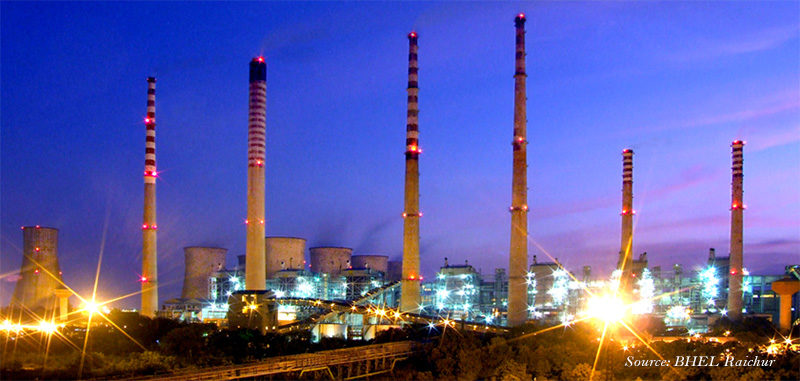Very recently, the first unit of the 2×800-mw Yeramarus supercritical power plant in Karnataka was commissioned. This development assumes significance on several counts. First, it imparts to public sector engineering firm Bharat Heavy Electricals Ltd (BHEL) the status of “power developer.” The Yeramarus plant is owned by Raichur Power Corporation Ltd – a joint venture between Karnataka Power Corporation Ltd (approximately equity stake: 50 per cent), BHEL (26 per cent) and IFCI Ltd (24 per cent). BHEL, after having supplied equipment to a very large share of India’s power generation capacity, is finally an owner, albeit part-owner, of a power plant.
The commissioning of the first unit of the Yeramarus plant is significant also because it is the first 800-mw power generation unit (considering both boilers and turbine-generators) commissioned by BHEL. It is also the highest-rating supercritical power unit—by any developer—in Karnataka.
BHEL’s unlikely decision to enter the power development space has an interesting history. In the period around 2006, India was planning supercritical power plants at a furious pace. Unfortunately, BHEL was not fully ready with supercritical technology and this led to several orders going in favour of Chinese suppliers. This was more the case with private sector power developers like Adani Group, GMR Group, Reliance (ADAG) Group, etc. Apart from Chinese players, there were suppliers from Russia, Korea and Japan. One case in point is NTPC’s Barh (Stage 1 of 3×660-mw) project in Bihar whose tendering was postponed because BHEL was not ready with supercritical technology. Ultimately, the tendering proceeded without BHEL’s participation and the project was finally clinched by main plant equipment suppliers from Russia.
JV route takes birth
Sometime in 2008, when BHEL was ready with supercritical technology but was facing increasing competition from overseas suppliers, BHEL mulled the “developer” route as a means to ensure orders. The philosophy was that BHEL would form minority joint venture with state power generation companies for their greenfield projects. Further, the understanding was that BHEL would be the deemed main plant equipment supplier for this project.
This idea took root when BHEL formed a joint venture with then Tamil Nadu Electricity Board (TNEB) to implement the Udangudi supercritical power project. Unfortunately for BHEL, and allegedly due to delays on its part, the JV was called off in 2013 with no progress on the project. Tamil Nadu decided to implement the project on its own. It is very ironical to note that BHEL was one of the shortlisted contactors for this project, along with at least two Chinese contenders. The much delayed project is till today mired in controversy over rejection of BHEL’s price bid.
Also read: NTPC realizes coal dream, but with delay
BHEL later proposed similar joint ventures with state power generation utilities of Karnataka and Maharashtra. In Karnataka, the joint venture – Raichur Power Corporation Ltd – was formed for the 2×800-mw Yeramarus project and the 1×800-mw Edlapur power project. Thanks to the JV route, BHEL won the EPC contract worth Rs.6,300 crore for the Yeramarus project. This was in April 2010. Later, in September 2010, BHEL was awarded the Rs.3,601- crore contract for the Edlapur project.
No more opportunity
The Yeramarus project has given BHEL its first “developer” status. The question now is: will there be more such instances? The answer is in the negative.
The JV will TNEB was called off depriving it of a potential opportunity of being the co-developer of the Udangudi project. The JV proposed with Maharashtra State Power Generation Company Ltd (Mahagenco) for a supercritical power project in Latur district never moved beyond the MoU stage. In the case of Raichur Power Corporation Ltd, while the Yeramarus project is progressing, there is strong suspicion that the Edlapur project will ultimately be cancelled as environmental clearance-related issues have set back the project by several years.
Also read: Taking the stress off power generation
It is very unlikely at this stage for BHEL to pick up equity stake in power generation projects, or form JVs with state government utilities. Today, BHEL does not need “support” to win new orders for supercritical power equipment. In fact, no new large power generation projects are anticipated in the near future. Those in the pipeline will be sufficient to meet the anticipated power demand.
It strongly appears therefore that the Yeramarus project would be the first and only instance of BHEL’s stint as power developer.

